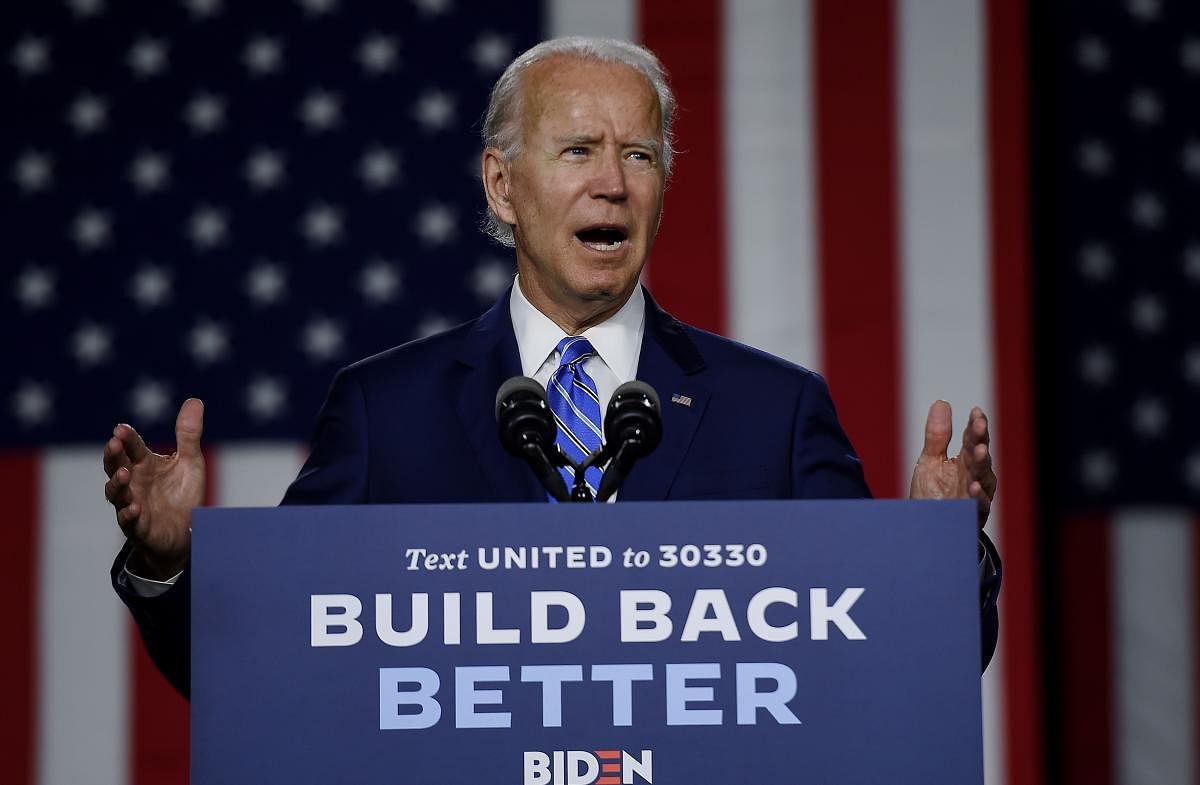
Democratic presidential candidate and former US vice-president Joe Biden has vowed to eliminate the limits on employment-based visas to address the massive green card backlogs of almost 10 lakh, an issue long faced by immigrants from countries like India.
"My immigration policy is built around keeping families together, modernising an immigration system by keeping families, unification and diversity as pillars of our immigration system, which it used to be,” 77-year-old Biden said recently.
He is challenging incumbent President Donald Trump, a Republican, in the November presidential elections.
"A Biden Administration will streamline and improve the naturalisation process to make it more accessible to qualified green card holders," according to his plan published on his website for securing America's values as a nation of immigrants.
"The Trump Administration has made it far too difficult for qualifying green card holders to obtain citizenship. Quite simply, this is wrong," it says.
"Biden will restore faith in the citizenship process by removing roadblocks to naturalisation and obtaining the right to vote, addressing the application backlog by prioritising the adjudication workstream and ensuring applications are processed quickly, and rejecting the imposition of unreasonable fees," it adds.
During a recent digital townhall meeting on Asian American and Pacific Islander (AAPI) issues organised by the NBC News, Biden alleged that Trump’s immigration policies are cruel and humane.
Biden said that he will take immediate action to protect dreamers, including more than 100,000 eligible dreamers from East and South Asia.
He also told townhall participants that he will “make it easier for qualified green card holders to move through this backlog.”
In April, Trump gave an executive order to suspend green cards for 90 days. In June, he issued a proclamation which extended the suspension till December 31, 2020.
The US every year allocates only 1,40,000 green cards for all employment-preference immigrants, including accompanying family members.
Currently, there is a backlog of almost 10 lakh foreign nationals and accompanying family members lawfully residing in the US. These applicants have been approved but are yet to receive employment green cards.
"As president, Biden will support family-based immigration by preserving family unification as a foundation of our immigration system; by allowing any approved applicant to receive a temporary non-immigrant visa until the permanent visa is processed," according to his plan.
He will support legislation that treats the spouse and children of green card holders as the immediate relatives they are, exempting them from caps, and allowing parents to bring their minor children with them at the time they immigrate, it says.
Biden has said that he will lift the temporary suspension on H-1B visas, the most sought-after by Indian IT professionals, if he wins the presidential elections.
On June 23, in a huge blow to Indian IT professionals eyeing the US job market, the Trump administration suspended the H-1B visas along with other types of foreign work visas until the end of 2020 to protect American workers in a crucial election year.
The H-1B visa is a non-immigrant visa that allows US companies to employ foreign workers in speciality occupations that require theoretical or technical expertise. The technology companies depend on it to hire tens of thousands of employees each year from countries like India and China.
"On day one, I'm going to send the legislative immigration reform bill to Congress to provide a roadmap to citizenship for 11 million undocumented immigrants who contribute so much to this country, including 1.7 million from the AAPI community," Biden says.
In his policy paper on immigration, Biden says that his high skilled temporary visas should not be used to disincentive recruiting workers already in the US for in-demand occupations.
"An immigration system that crowds out high-skilled workers in favour of only entry level wages and skills threatens American innovation and competitiveness,” it says.
Biden will work with Congress to first reform temporary visas to establish a wage-based allocation process and establish enforcement mechanisms to ensure they are aligned with the labour market and not used to undermine wages, it says.
Then, Biden will support expanding the number of high-skilled visas and eliminating the limits on employment-based visas by country, which create unacceptably long backlogs, it add.
The paper also talks about increasing the number of visas offered for permanent, work-based immigration based on macroeconomic conditions.
Currently, the number of employment-based visas or green card is capped at 140,000 each year, without the ability to be responsive to the state of the labour market or demands from domestic employers, it says.
As president, Biden will work with Congress to increase the number of visas awarded for permanent, employment-based immigration - and promote mechanisms to temporarily reduce the number of visas during times of high US unemployment, it said.
He will also exempt from any cap recent graduates of PhD programmes in Science, technology, engineering, and mathematics fields in the US.
Biden believes that foreign graduates of a US doctoral programme should be given a green card with their degree and that losing these highly trained workers to foreign economies is a disservice to US' economic competitiveness.